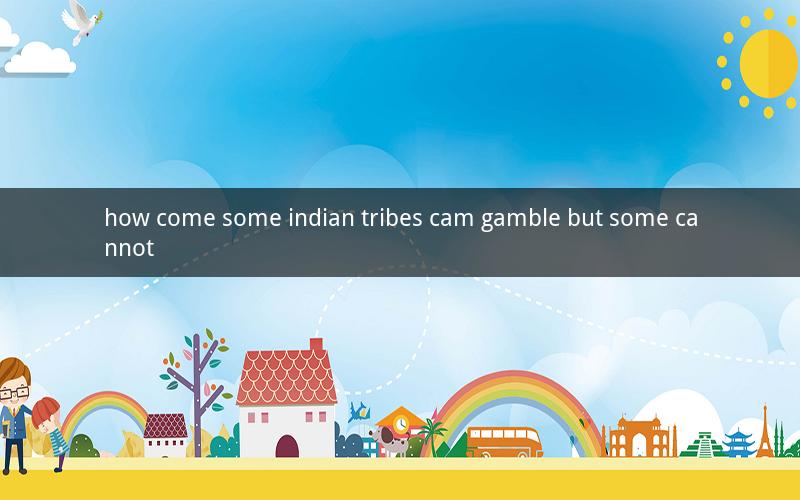
Table of Contents
1. Introduction to Indian Tribes and Gambling
2. Historical Context of Gambling Among Indian Tribes
3. Legal Framework and Casino Operations
4. Cultural and Social Factors Influencing Gambling Practices
5. Economic Impacts of Gambling on Indian Tribes
6. Challenges and Concerns Associated with Tribal Gambling
7. Conclusion
1. Introduction to Indian Tribes and Gambling
Indian tribes in the United States have a rich history and diverse cultural practices. One aspect that has garnered significant attention is gambling. While some tribes have embraced gambling as a means of economic development, others have chosen to abstain. This article explores the reasons behind this disparity among Indian tribes regarding gambling.
2. Historical Context of Gambling Among Indian Tribes
Gambling has been a part of Native American culture for centuries. Many tribes engaged in various forms of gambling, including card games, dice games, and even betting on horse races. However, the extent and nature of gambling activities varied greatly among tribes.
3. Legal Framework and Casino Operations
The legal framework surrounding tribal gambling in the United States is complex. The Indian Gaming Regulatory Act (IGRA) of 1988 established a regulatory framework for gaming on tribal lands. Under IGRA, tribes can operate casinos and other forms of gambling if they have entered into a compact with the state where the casino is located.
4. Cultural and Social Factors Influencing Gambling Practices
Several cultural and social factors contribute to the variation in gambling practices among Indian tribes. These factors include:
- Historical Gaming Practices: Some tribes have a long-standing tradition of gambling, which has been integrated into their cultural fabric.
- Religious Beliefs: Certain tribes have religious beliefs that discourage or prohibit gambling.
- Social Values: Some tribes prioritize self-sufficiency and community well-being over the potential economic benefits of gambling.
- Youth Engagement: The level of youth engagement in gambling activities can also influence tribal attitudes towards gambling.
5. Economic Impacts of Gambling on Indian Tribes
Gambling has had mixed economic impacts on Indian tribes. For some tribes, casinos have become a significant source of revenue, funding various community initiatives and programs. However, others have experienced negative economic consequences, such as increased crime, addiction, and social problems.
6. Challenges and Concerns Associated with Tribal Gambling
Several challenges and concerns have emerged in relation to tribal gambling:
- Addiction: The rise of casinos has led to an increase in gambling addiction among tribal members.
- Social Problems: Some tribes have reported higher rates of domestic violence, child abuse, and other social issues as a result of gambling.
- Environmental Impact: The construction and operation of casinos can have negative environmental consequences.
7. Conclusion
The reasons why some Indian tribes have embraced gambling while others have not are multifaceted. Cultural, social, and economic factors all play a role in shaping tribal attitudes towards gambling. As the gaming industry continues to evolve, it is essential for tribes to carefully consider the potential impacts of gambling on their communities.
---
Questions and Answers
1. Question: What is the Indian Gaming Regulatory Act (IGRA)?
Answer: The IGRA is a federal law that establishes a regulatory framework for gaming on tribal lands and allows tribes to operate casinos and other forms of gambling.
2. Question: How has gambling impacted the economy of some Indian tribes?
Answer: For some tribes, gambling has become a significant source of revenue, funding community initiatives and programs.
3. Question: What are the potential negative social impacts of gambling on Indian tribes?
Answer: Negative social impacts include increased crime, addiction, and social problems such as domestic violence and child abuse.
4. Question: Why do some tribes choose not to engage in gambling?
Answer: Some tribes may abstain from gambling due to religious beliefs, cultural values, or concerns about the potential negative impacts on their community.
5. Question: How has the legal framework for tribal gambling evolved over time?
Answer: The legal framework for tribal gambling has evolved significantly since the passage of the IGRA in 1988, with ongoing discussions and negotiations between tribes and states.
6. Question: What role does youth engagement play in tribal gambling practices?
Answer: Youth engagement in gambling activities can influence tribal attitudes towards gambling and may contribute to the spread of addiction and social problems.
7. Question: How do some tribes balance the economic benefits of gambling with their cultural values?
Answer: Tribes that engage in gambling may establish strict regulations and oversight to ensure that the economic benefits are used for the benefit of the community while respecting cultural values.
8. Question: What are the environmental impacts of casino construction and operation?
Answer: Casino construction and operation can have negative environmental consequences, such as pollution and habitat destruction.
9. Question: How can tribes address the issue of gambling addiction within their communities?
Answer: Tribes can implement prevention and treatment programs, as well as provide support for individuals struggling with gambling addiction.
10. Question: What is the future of tribal gambling in the United States?
Answer: The future of tribal gambling is uncertain, as it continues to be a contentious issue involving legal, social, and economic considerations.